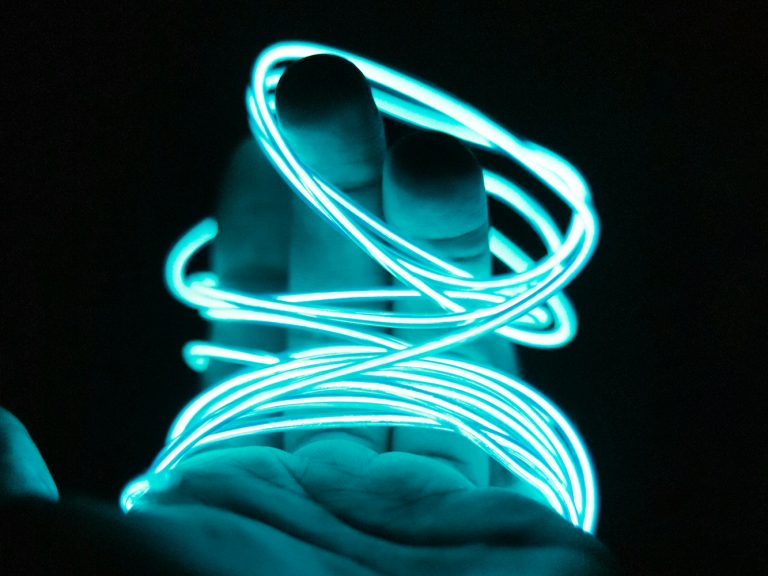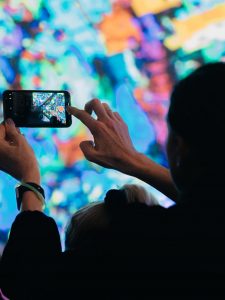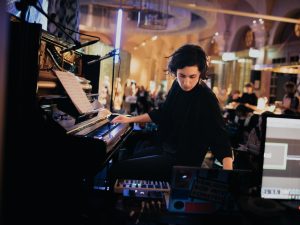Welcome to the tenth edition of Science Today on the theme of light, where three scientists will present research that provides new insights.
Science Today is a recurring afterwork that kickstarts the brain and the weekend with the most exciting research of the day and some of Stockholm’s best DJs. Science Today invites PhD students and postdocs from Karolinska Institutet (KI), Royal Institute of Technology (KTH) and Stockholm University (SU) to present their research on stage in our bistro.
The theme of this edition of Science Today reflects the upcoming, annual light festival Nobel Week Lights. Welcome to a night full of illuminating insights!
The ticket price also includes entrance to the museum’s exhibitions, which are open until 21:00. Before and after the conversation, Bistro Nobel serves its Friday menu with carefully selected small dishes, suitable wines, beer, cocktails or non-alcoholic options. The bistro and the shop are open until 21:00.
Speakers
Axel Knave, PhD student, KTH Royal Institute of Technology, department of protein science
Subject: “How we can engineer bacteria to create a more sustainable society by using sun light”
My research uses bacteria that naturally take up light and carbon dioxide as an energy source. By using genetic engineering, we aim to transform these bacteria into biological factories that, in the future, could be used to renewably produce substances we currently obtain from fossil sources, such as fuel or even alternatives to palm oil.
Marina Slashcheva, PhD candidate, Karolinska Institutet, Neuroscience department, Marie Carlen group
Subject: Shedding light on the role of distinct neurons in cognition
The brain consists of multiple types of neurons. Just like different people, neurons have distinct characteristics: they behave differently, connect to different parts of the brain, and are affected by disorders to varying degrees. Using light, we investigate how major classes of excitatory neurons contribute to cognitive processes. A method called optogenetics allows us to ’hack’ neurons and modify them so that they can be influenced by light—either silencing their activity or amplifying it. These manipulations provide insights into how neurons are involved in decision-making and, potentially, how they can be targeted for the treatment of mental disorders.
Seán Brennan, Postdoc at the Supernova and explosive transients group in Astronomy Department at the Oskar Klein Centre, Stockholm University
Subject: “From Photons to Supernova: How Light Reveals the Secrets of Stars”
When a star reaches the end of its life and becomes a supernova, it releases an intense burst of light, briefly outshining entire galaxies. This powerful display includes high-energy forms of light, like X-rays and gamma rays, allowing scientists to study some of the most extreme events in the universe. Supernovae are also essential to understanding cosmic evolution, as they scatter elements like carbon, oxygen, and iron into space—the building blocks for future stars, planets, and even life. By studying light from these explosions, we gain insights into the life cycles of stars and the ongoing story of the cosmos. And through my research, we may even capture a rare glimpse of a star on the far side of the universe, just moments before it explodes as a supernova.
Programme
16.30 Doors open
17.00 Mingle and music by Sheda Shiltagh
18.00-19.00 Conversation on stage
19.00-20.00 Hangout with Sheda Shiltagh
Tickets
Book your tickets here. To buy a member ticket, a valid membership is required. Please show your membership card in the entrance. Purchased tickets are non-refundable.
Bags
Please note our advise on bringing bags to the museum.
Photo policy
In order to be able to share all the fun things that happen at the museum, we take photos, film and live broadcast many of our events. The material can be used in the Nobel Prize Museum’s communication channels, marketing and social media. If an event is organised in collaboration with another actor, the material can be used in their communication. Please contact us if you have any questions about this.


